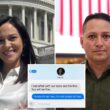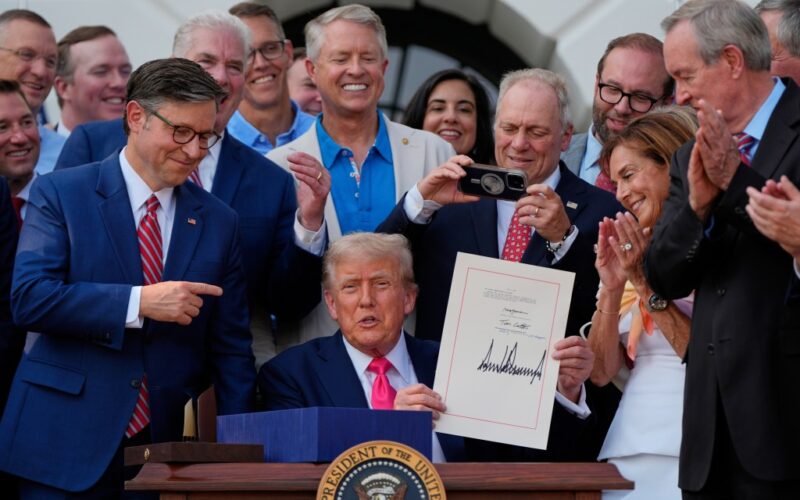The signing into law of the One Big Beautiful Bill Act (OBBBA) is not just a setback, it’s a blow to millions of low-income Americans. For New Yorkers, it lands like a gut punch.
This budget imposes the most severe rollback of Medicaid since the program’s creation in 1965. 17 million Americans could lose coverage. In New York State, where Medicaid covers 7 million residents, the impact will be devastating.
New York stands to lose $100 billion in federal funding over the next decade. Nearly 1.5 million could be denied insurance. Essential services, including nursing homes, substance use treatment, and long-term care are at risk of collapse. Safety net hospitals, already stretched thin, will be first to feel the tremors. We could lose more than 200,000 jobs in health and related sectors statewide, disproportionately affecting communities Medicaid was designed to serve.
As a former city health commissioner and a practicing primary care physician seeing Medicaid patients, I know firsthand the New Yorkers this will affect. My patients are single mothers juggling multiple jobs, working immigrants with chronic illnesses, young people struggling with mental health and affordability. These cuts won’t just hit balance sheets, they will devastate lives.
But we are not helpless. New York is uniquely positioned to chart a bold path forward, if we choose to act.
Last year, New York secured a new federal Section 1115 Medicaid waiver, a potentially transformative tool allowing states to flexibly invest in the root causes of health like housing, food, transportation, and other essential needs through community-based providers. These “social care networks” keep people healthy and out of the hospital, and they reflect a powerful truth: a person’s health is shaped more by their ZIP code than their genetic code.
These innovations will be critical as hospitals face fiscal challenges from this bill. Seventy-five New York hospitals were already considered financially distressed before the passage of OBBBA. They and others now face a steep dropoff in Medicaid revenue, which means reduction in care, if not threat of closure. Rather than belt-tightening alone, it is time for wholesale realignment of our health systems around prevention and spending on the social determinants of health.
Other states are already showing what’s possible. North Carolina’s “Healthy Opportunities Pilots” and California’s CalAIM initiative are investing Medicaid dollars in upstream solutions. These efforts prove it’s feasible and effective to align health systems with people’s everyday social realities.
In light of the looming crisis, and despite federal rules that will likely end in litigation, Gov. Hochul can act boldly by issuing an emergency order to scale the spending flexibilities authorized under the waiver.
The state should also shift the entire Medicaid system to value-based contracts, where providers are paid for prevention and outcomes, not just the amount and kind of care provided. These are no longer policy experiments — they are lifelines for communities at risk, and will allow us to spend remaining Medicaid dollars on what delivers the highest return on health.
New York must also strengthen community care providers like FQHCs that will serve the newly uninsured. Community Healthcare Network, for example, operates 14 clinics serving more than 85,000 annually, regardless of status. These providers need added support as federal funding declines.
And working New Yorkers ineligible for Medicaid also need protection. A single statewide insurance exchange combining Medicaid and Essential Plan, plus a state-funded basic plan covering emergency services for undocumented residents (similar to Massachusetts), would lower administrative costs while creating a true safety net. Combined with extended plan commitments, these steps would reduce plans’ churn costs and encourage prevention investments.
None of this is easy, and it’s definitely not free. But with Medicaid comprising 43% of the state’s budget, we cannot distinguish between health and fiscal policy. One place to look for immediate funding is the Essential Plan Trust Fund, which will eventually be diminished by OBBBA.
Also, a modest tax on sugar-sweetened beverages would combat a leading cause of childhood obesity while generating more than $1 billion annually for New York. Similar taxes in Philadelphia and Berkeley have reduced soda consumption while funding early childhood and health programs.
This budget is not just bad policy, it’s a moral failure. The governor can seize this moment and turn these looming cuts into an opportunity to build something better. Let New York lead, as it always has, by stepping into the breach and showing the nation what a values-driven, prevention-focused, people-centered health system looks like.
Vasan is the former health commissioner of New York City.








